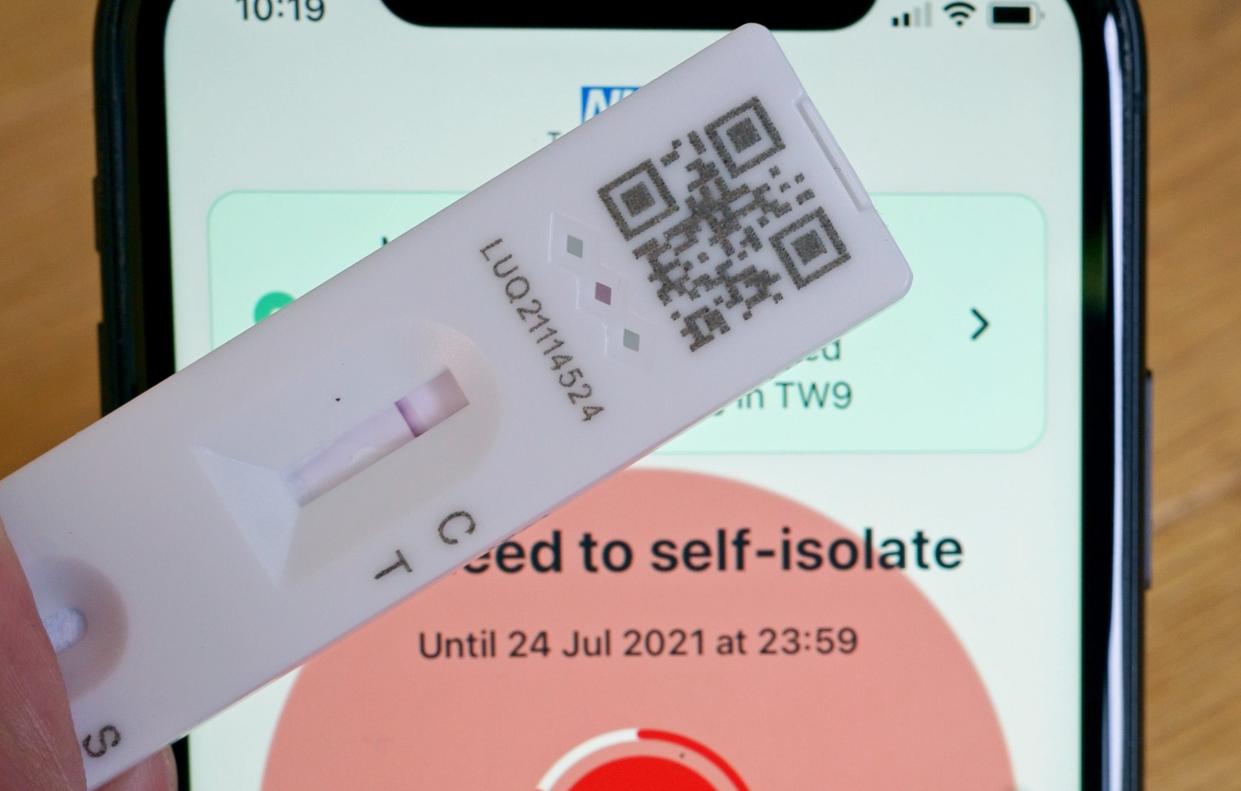Emergency staff to avoid self-isolation with 200 testing sites amid pingdemic

The government’s workplace testing program has been expanded to an additional 200 testing sites to allow more emergency services staff to avoid self-isolation.
While some police, fire fighters, Border Force staff and transport workers were already eligible for a self-isolation exemption, the exemptions were only granted in serious and exceptional circumstances where staff shortages would cause “major detrimental” impacts on the delivery of essential services.
In these cases, staff had to be fully vaccinated and be explicitly named by their employers in order to receive an exemption from self-isolation.
On Saturday, the government announced that an additional 200 testing sites would be opened to enable daily contact testing to “further critical workplaces in England”.
The move comes as the so-called “pingdemic” has caused staffing shortages in several industries as hundreds of thousands of people are told to have been forced to miss work.
A statement from the government said: “New testing sites will be allocated for frontline police and fire services to ensure critical staff can continue their vital work.
“Frontline Border Force staff, working at some ports across the country will be able to take part in the Border Force run testing centres.”
The statement said that testing sites would also be set up in ports and airports, haulage firms and within rail infrastructure to “ensure the transportation of critical goods and supplies and the smooth running of England’s transport network”.
The expansion of the exemption scheme will enable frontline workers who have been “pinged” by the NHS Covid-19 app or contacted by NHS Test and Trace and told to self-isolate to continue working if they test negative for the virus.
Home secretary Priti Patel said: “Daily testing will keep our frontline teams safe while they continue to serve the public and communities across our country”.
Health secretary Sajid Javid commended the work of frontline emergency services throughout the pandemic for continuing to “keep us all safe, overcoming enormous challenges to do so,” whilst workers across transport networks have “kept the country moving”.
He added: “As we learn to live with the virus, we must do everything we can to break chains of transmission and stop the spread of the virus.
“Daily contact testing of workers in these critical sectors will help to minimise any disruption caused by rising cases in the coming weeks, while ensuring staff are not put at risk.”
The expansion of the exemption programme follows the government’s initial announcement of the scheme on Thursday, which would allow thousands of workers at around 500 sites in the food sector to avoid self-isolation through daily testing if notified as close contacts of a positive coronavirus case.
The scheme has caused frustration and confusion across industries, as the British Frozen Food Federation described the move as “worse than useless” and UKHospitality warned of a “summer of closures” as hospitality services were left out of the scheme altogether.
Train services across the country have also been reduced, amid staff shortages due to the pingdemic, with London Tube lines suspending service, Thameslink and Southern cutting weekday timetables on five routes, and Avanti North West cutting services between London Euston and Manchester, Birmingham and North Wales.
The government has faced increasing calls from industry leaders to bring forward plans for a wider relaxation of self-isolation rules for people who are fully vaccinated, expected to enter into force on 16 August, in order to relieve pressure on key sectors of the economy.
But medical experts have warned that the problem is not the pingdemic, rather, the issue is that the prime minister has allowed the virus to “rip” through the nation, leading to high infection levels and resulting self-isolation “pings”.

